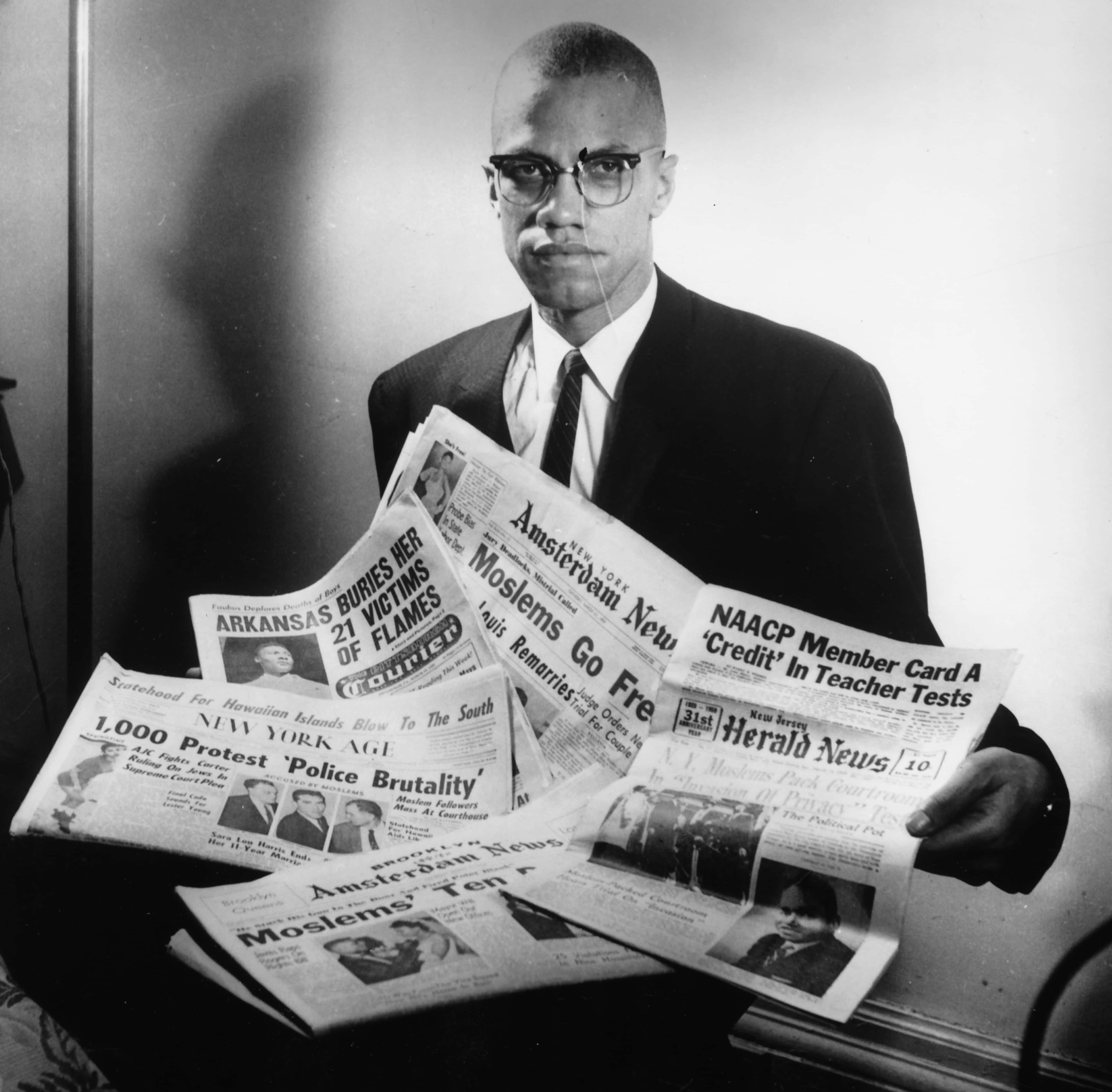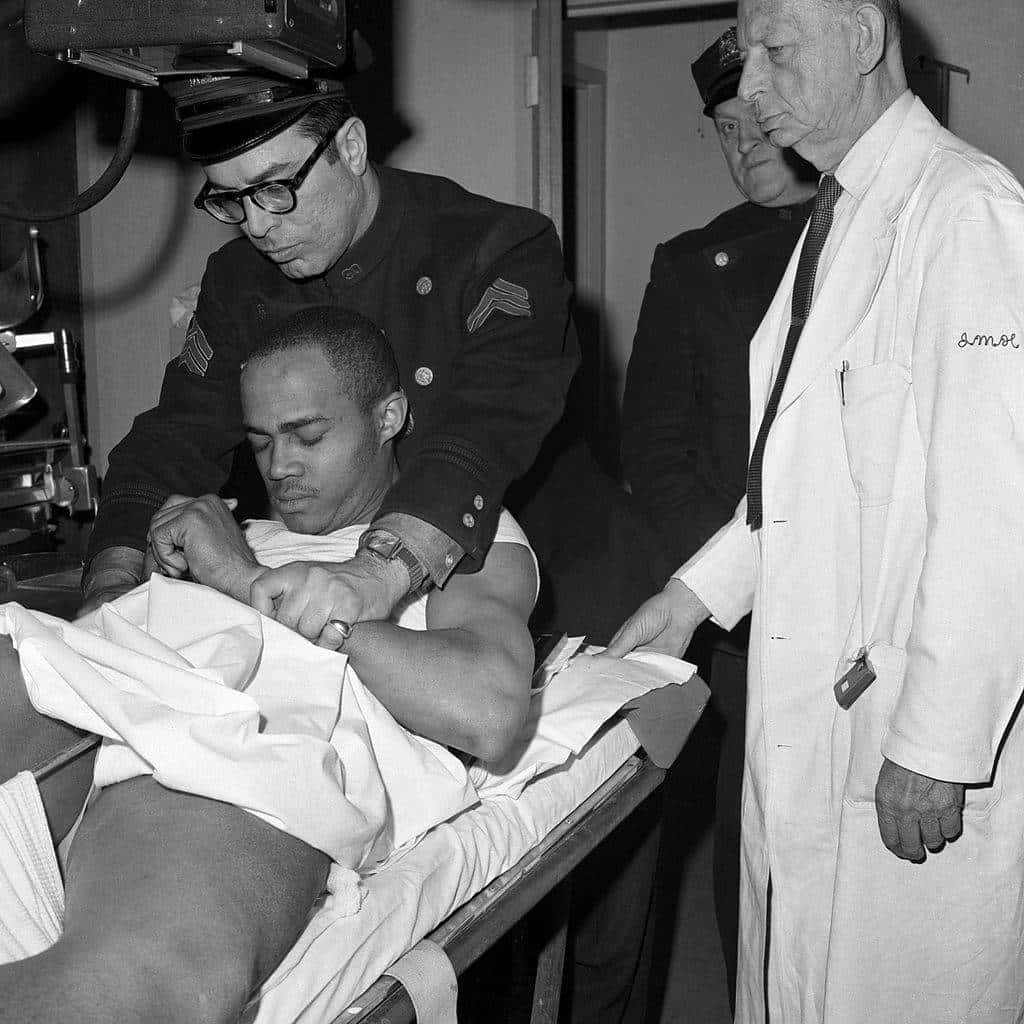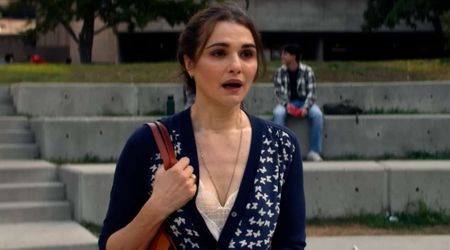'Blood Brothers: Malcolm X & Muhammad Ali': How did Malcolm X die?

Malcolm X, born Malcolm Little, one of history's most influential Black figure was just 39 when he was assassinated at the Audubon Ballroom in Harlem, New York on February 21, 1965. And despite the 56 years that have passed since his death, the events that unfolded and the aftermath is still a subject of discussion. The African-American Muslim minister and human rights activist who was instrumental during the civil rights movement will be seen on screen again in Netflix's 'Blood Brothers: Malcolm X & Muhammad Ali,'
The documentary delves into the three-year friendship between the world champion boxer and the activist and provides a look at their strained relationship and the clash over the Nation of Islam's leadership. The Kenya Barris-produced docu also includes new footage that provides a timeline of their friendship and the subsequent fallout.
READ MORE
Who was Bumpy Johnson? How real-life gangster's story inspired Epix series 'Godfather of Harlem'
How did Malcolm X die?

Malcolm X was assassinated by three members of the Nation of Islam (NOI) — Talmadge Hayer or Thomas Hagan aka Mujahid Abdul Halim, Norman Butler aka Muhammad Abdul Aziz, and Thomas Johnson aka Khalil Islam — were convicted of his murder in 1966. On the day of the assassination, the minister had instructed his security personnel not to perform any security checks at the entrance according to Time.
While checking was a mandatory practice that was made by the NOI, Malcolm X reportedly put a stop to it in 1965. However, he had his own security detail. On that fateful day, when he took the stage to begin his address there were roughly 400 people present, but there weren't any law enforcement bodies around considering the high-profile name that was giving the speech. A commotion broke out among the audience when he started his address, and while he and his team were trying to diffuse the situation, one of the people ran up to the stage and shot him. This was followed by two other people who approached Malcolm and fired at him again. He was shot 21 times.
In 1964, Malcolm X had left the NOI, and according to 'Malcolm X: A Life of Reinvention, he had become increasingly uncomfortable with NOI head honcho Elijah Muhammad’s extramarital affairs. Adding to this was the act of silencing him after he spoke regarding the assassination of President John F. Kennedy in November 1963. In what will go down as one of his famous lines in history, Malcolm has described the tragedy as “the chickens coming home to roost.”
His departure from the organization also saw him receive death threats over the course of the year leading up to his assassination. Prior to his death, his home in Queens was firebombed and that was the first inkling that his life was in serious danger.

'Blood Brothers: Malcolm X & Muhammad Ali'
The official synopsis reads: "For three pivotal years, Muhammad Ali and Malcolm X forged a brotherhood that would not only change both men but change the world. Blood Brothers: Malcolm X & Muhammad Ali tells the extraordinary story behind the friendship —and the ultimate falling out— of two of the most iconic figures of the 20th century. Few people understand the bond these men shared."
"In this new feature-length documentary from producer Kenya Barris, director Marcus A Clarke offers a fresh perspective by using insider voices and never-before-seen footage to chart this most complex of friendships, tracing the near-simultaneous and symbiotic rise of the charismatic and outspoken Olympic champion who charmed the nation, and the ex-con-turned intellectual revolutionary who railed against oppression."
It adds: "Inspired by the book “Blood Brothers” written by Randy Roberts and Johnny Smith, the film is directed by Marcus A. Clarke ('Unsolved Mysteries', 'Rapture'), produced by Kenya Barris and Jason Perez and executive produced by Erynn Sampson, Jonathan Chinn, Simon Chinn, Simon George, and Marcus A. Clarke."
The documentary releases Sep 9 on Netflix.










